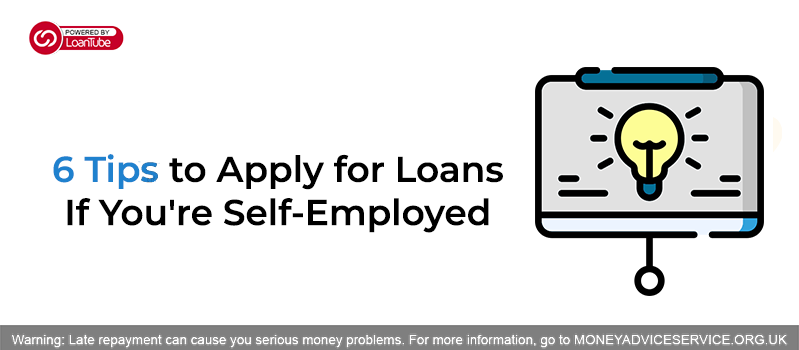COVID-19 wreaked havoc in the global economy, and we’re still looking for a road to recovery. To cope with this abrupt economic downturn, the UK government is urging banks to free up more funds for lending purposes.
However, the lending criteria for most of these lending institutions are so strict that a significant fraction of people cannot avail of these loans. Credit score and income are two salient factors that drive a lender’s decision. This is one of the key reasons self-employed people with a variable income have a tough time finding loans.
So how does one apply for financial aid if they’re self-employed? Read on to find out more about self-employed loans.
Will I be able to borrow self-employed loans?
You can certainly apply for a loan even if you’re self-employed, although your options may be limited. Good credit history can fetch you offers with lower interest rates, as long as you fulfil the lender’s criteria. Your credit history and proof of income allow the lender to assess your creditworthiness and affordability.
Several lenders lend money to freelancers and self-employed individuals or business owners looking to bridge some financial gaps, provided that the business yields substantial profits. As long as you demonstrate responsible credit behaviour, lenders may consider your application even if you’re self-employed.
Can I borrow a self-employed home loan?
Mortgages or home loans are the same for everybody. Self-employed mortgages are not a concept. Be it an employee or a business owner; you will essentially be applying for the same financial or mortgage products.
Most lenders require self-employed mortgage applicants to provide at least two years of accounts signed off by either an accountant (certified or chartered). As long as you are able to account for growth in profits over the years along with adequate savings, you may qualify for a mortgage even with a variable income.
6 Pro Tips to successfully apply for a personal loan for self-employed
- Assess your finances: Assess your financial situation to see if there’s room for loan repayments. With variable income, it can be challenging to pin down your monthly economic yield. So, it is always better to have a contingency plan for repayments.
- Review your credit rating: Ideally, you should make it a regular practice to check your credit score. The credit score majorly drives a lender’s decision. So knowing your score will help you anticipate the kind of loan offers you are likely to receive. Besides, tracking your score on a regular basis can motivate you to work hard towards improving it. You can also dispute discrepancies or unidentified enquiries in your credit report to a CRA. This will certainly give your credit score a boost.
- Explore the market: You’ll never know the kind of offers that await you if you don’t explore the loan market for better offers. Your first offer may be good, but there may be a better offer. FCA approved brokers like 786 Loans is your one stop shop to compare multiple personalized loans offers at the click of a button.
- Double-check your application: File your application meticulously, with all the required documents or details. Even a tiny error may result in the rejection of your application. It may be misconstrued as identity fraud. So, prepare your paperwork in advance to minimize the chances of making a mistake.
- Check for early repayment charges: The sooner you pay off all your debts, the better. But quite a few lenders charge an early repayment fee, which can sometimes be a hefty amount to pay. Ensure that your lender doesn’t impose a charge on early settlement.
- Space out loan applications: Multiple hard credit checks by individual lenders can gravely impact your credit score. Space out your applications by at least 30-45 days. 786 Loans processes your application with multiple lenders simultaneously, giving you a variety of personalized loan offers to choose from.
Ways to borrow small loans for self-employed
- Personal loans: Personal loans are unsecured loans, which you can apply for even without collateral. Although, you will only be able to qualify for competitive rates if you have a good credit rating and documented income.
- Secured loans: Secured loans generally rely on collateral, such as your equity in a property. So, if you don’t have good employment history or documented income to get a personal loan, you may consider a secured loan. Plus, the interest rates on secured loans are lower than that of personal loans. However, if you fail to keep up with the repayments, the lender may repossess your property to recover their loss.
- Guarantor loans: Guarantor loans are essentially personal loans wherein a co-signer partakes in the loan’s obligations with you. If you fail to repay the loan, the onus of repayments falls on your guarantor. Since guarantor loans are for people with a low credit rating, most lenders require a guarantor with a stellar credit history and stable income.
- Business loans: You can apply for a business loan if you need the funds to support your business expenses – machinery, special equipment, computer systems, or daily operational costs. The lender will check your business accounts to help them decide whether to lend to you.
Conclusion
Most lenders prefer borrowers with a stable income, over a self-employed individual, with variable income. While your options may be scanty, it’s not entirely impossible to get a personal loan if you’re self-employed. However, it is vital to assess the pros and cons carefully before making a decision.

